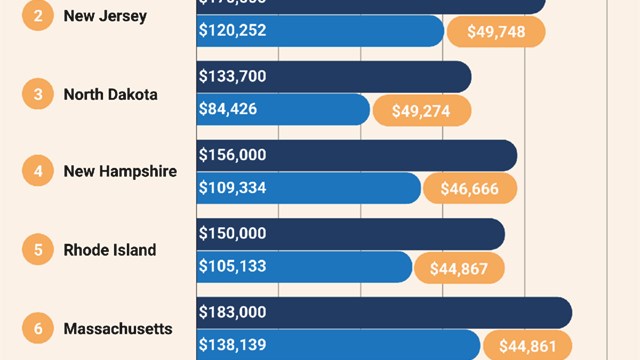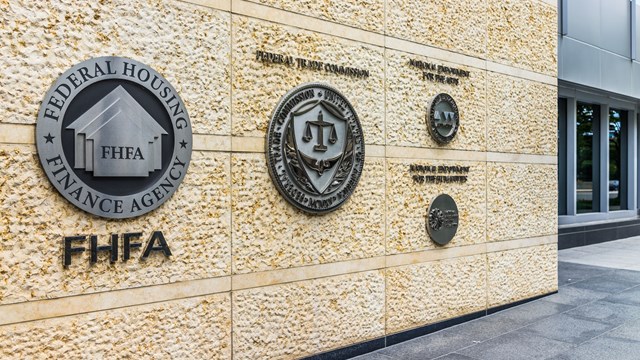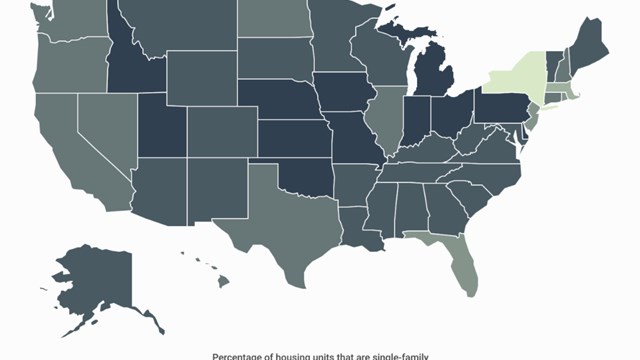
For most New Yorkers, the search for housing is perhaps the least favorite part of the New York experience. If the size is right, the price is wrong; if the price is right, the neighborhood’s wrong. And then there’s that hideous wallpaper in the hallway. In an area as popular and populous as metropolitan New York, finding a unit that meets all your needs is darn near impossible. The Real Estate Board of New York (REBNY) hopes to change all that.
Founded in 1896, REBNY began as the state’s first real estate trade association, created in response to New York’s 1890s building boom, which was necessitated by the mass influx of people and businesses into the area. Since then, REBNY’s ranks have grown to include not just brokers but owners, builders, managers, banks, insurance companies, pension funds, real estate investment trusts, utilities, attorneys, architects, marketing professionals and other important real estate players.
REBNY’s mission is to promote industry policies to the public and to legislators. The association is governed by a 100-person Board of Governors headed by a chairperson. The membership is divided into six divisions organized by function: The Owners and Builders Division, the Commercial Brokerage Division, the Residential Brokerage Division, the Management Division, the Allied and Associates Division, and the Institutional Owners Division The four largest divisions are governed by their own board of directors.
REBNY’s civic-minded members walk the walk and talk the talk. Members created The REBNY Foundation, a non-profit corporation that enables them to engage in charitable pursuits, such as absorbing the aftereffects of Superstorm Sandy.
“The first thing we did was to work with the city on coming up with a system for reopening buildings,” says REBNY president Steven Spinola. “The city had a meeting with us to talk about what would be necessary for a building to reopen and we gave our input on that. Then we formed a working group and this was the longer term effort to identify what worked and what didn’t work and what things could be done that would permit us to be better equipped to handle another Sandy or another serious hurricane.”
REBNY members are actively participating in the mayor’s and governor’s efforts to raise private funding to aid those displaced by the storm; donating equipment like pumps and generators to aid in the cleanup effort and identifying temporary space to accommodate commercial tenants displaced by the storm. The organization was also instrumental in spearheading Department of Building reforms related to construction and crane safety. REBNY members also sit on many community boards and other civic organizations.
The New Addition
That same sense of civic pride and desire to advance the industry governs most of REBNY’s programs and policies, including the renewal of two major New York City economic development programs: the 421a exemption program and the Industrial and Commercial Abatement Program (ICAP). Both of these programs are critical and work to encourage capital investment in new housing, commercial development and renovation, as well as offset the heavy tax burden our real property tax system places on these properties. The 421a exemption grants a partial tax exemption to developers of new construction for a period of 10, 15 or 25 years. Also, under a 421a benefit, the new owners in the building get relief from a portion of their real estate taxes for a certain period of occupancy.
“Affordable housing is a big issue. The city is in desperate need of what we call work force housing. That is housing that is affordable for teachers and policemen and firefighters and nurses. The people who really make the city run,” says Bob Knakal, vice president of REBNY’s Commercial Division, and the chairman and founding partner of the Manhattan-based commercial brokerage Massey Knakal. “Modifications were made to the 421a program by politicians who really don’t understand the program. We think that one of the solutions to the affordable housing problem is to create proper incentives not only for the creation of new affordable housing but for the conversion of consisting obsolete office buildings into affordable housing.”
On the Watch
The association’s concern with the New York City housing situation has stimulated discussion with Mayor Michael R. Bloomberg’s office regarding the development of single family homes, and low to middle income housing.
REBNY watches real estate legislation very closely to protect the interests of its members and the city’s economic prosperity. When the 421a tax abatement bill made its way through city and state government, REBNY was active in ensuring that the legislation effectively did what it was supposed to: encourage the building of affordable housing in the city. REBNY also provides other services to New Yorkers through its active Residential Management Council. The council reaches out to co-op and condo managers by making standard purchase applications, alteration agreements and building fact sheets available on the website.
“It’s important for people who live in co-ops and condos in the city of New York to better understand what the ramifications are in terms of their building being designated as a landmark,” says Spinola. “We have proposed and will continue to propose legislation that will make the process more transparent.”
Keeping It Fresh
REBNY members are offered a full complement of social activities, educational opportunities and member benefits to keep them interested and involved. In 2012, REBNY reached an historic high in membership with over 14,000 members.
“We’ve been around for 118 years and the board continues to be I think the most important voice of real estate in New York City and maybe the state,” says Spinola. “We’ve had wonderful growth in terms of brokerage and community becoming much more involved with REBNY. When I first became president in 1986, it was primarily a commercial board with commercial issues and today we are clearly a board that deals with residential brokerage, commercial office buildings and zoning issues. Because we deal with every aspect of real estate I think that people who care about the city and care about the state recognize that it’s important to be a member.”
REBNY also offers numerous courses and seminars: licensing and state-mandated continuing education courses, as well as special seminars that address timely topics such energy efficiency, emergency preparedness and ecological awareness. For information about REBNY’s continuing education courses contact the Education Department by phone at (212) 532-3100 or by email at lJaipal@rebny.com.
The organization’s future is tied to the New York real estate market, which, unlike the rest of the country, is very solid. In 2012, commercial broker Mary Ann Tighe, CEO of CB Richard Ellis, concluded a three year term as chairman of REBNY, serving as the first female in the history of the organization. Rob Speyer, co-CEO and president of Tishman Speyer, is the current chairman.
The year also brought an increased online presence. REBNY managed to raise its digital presence upgrading its website, its multiple listing service, and creating a new identity on social media outlets like Twitter and Facebook. REBNY currently boasts more than 15,000 Twitter followers and more than 3,200 Facebook fans—a huge feat in such a short period of time.
Christy Smith-Sloman is a staff writer for The Cooperator and other publications.









Leave a Comment